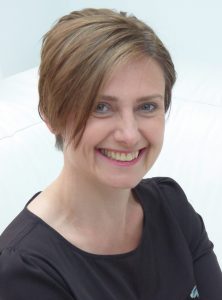February 5, 2021, by Adele Horobin
Taking steps forward in discovering drugs to treat tinnitus
We know that various treatments can help people manage their tinnitus but everyone would like there to be a cure for tinnitus. We are not there yet, but work is being done to find one. For Tinnitus Week, we would like to revisit the work we did to test a new drug.

Professor Deborah Hall
Back in 2014/15, the Nottingham Biomedical Research Centre*, led by Professor Deborah Hall, designed and conducted a clinical trial for the first drug developed to directly treat tinnitus. AUT00063 is an experimental new medicine that showed potential to moderate the nerve pathways involved in hearing. We tested the drug in a randomised controlled trial to investigate its safety and effect on tinnitus compared with a placebo (a dummy sugar pill). This was called the QUIET-1 trial.
Although the results were disappointing – the drug didn’t show any positive effects against tinnitus – it provided many important learning points and represented a quality in drug development and testing that is much needed in tinnitus research in order for a genuine cure to be found.
In recognition of the step forward this represents in tinnitus research, Professor Deborah Hall was presented with 2020’s Marie and Jack Shapiro Prize for her paper which reported on the QUIET-1 trial’s results. For more information, including a link to the winning paper, please visit the British Tinnitus Association website page detailing the Shapiro prize.
*The hearing theme of the Nottingham Biomedical Research Centre was previously the Nottingham Hearing Biomedical Research Unit when the clinical trial was conducted.
No comments yet, fill out a comment to be the first

Leave a Reply